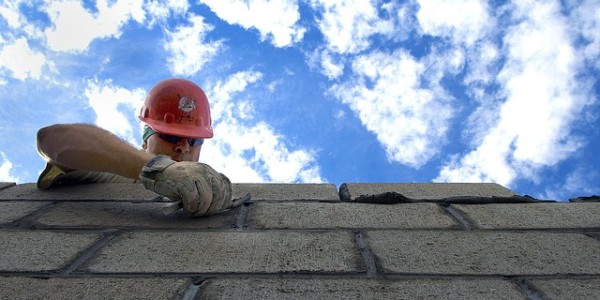Think of a construction site. Depending on how familiar you are with construction, you might get an image of a bunch of guys wearing yellow hats wielding hammers and drills. Or maybe you visualize those famous images of construction workers fearlessly traversing I-beams hundreds of feet up in the sky. However, you probably aren’t picturing a bunch of robots laying bricks.
Automation is making waves in nearly every occupation imaginable, and robots are now being used in construction.
Machinery in construction is nothing new, but automated machinery certainly is. A company called Construction Robotics is aiming to advance the construction industry through automation and robotics.
The company has developed a machine they call the Semi-Automated Masonry system or SAM. SAM is the first robot of its kind. As the name suggests, it is a partially automated brick laying robot that works on construction sites. Since SAM is not completely automated, an operator is required. That operator is a mason who follows the robot to tools joints and ensures performance quality.
While these collaborative robots are certainly groundbreaking in the construction industry, the concept of humans and robots collaborating to job is fairly popular. They’re cobots, or robotic coworkers.
Creating collaborative robots is a big trend in robotics at the moment. Instead of implementing machines that are too dangerous to work alongside humans, many robotics companies are designing robots that can be used in conjunction with human workers.
This current version of SAM won’t replace a work crew, but it can certainly make jobs easier and increase productivity on a construction site. The reasons for introducing automation to construction are no different from the reasons that automation is used in manufacturing.
Automation provides better efficiency, more savings, and promotes the advancement of new technologies. Automation and motion control are at the core of Indramat systems, which is why many manufacturers have chosen Indramat.
However, if you’re still working with an Indramat system, many of the parts in your plant will be legacy products. This means that those products are no longer made. Luckily, we specialize in factory repair, and we can get those legacy parts in working order. If you have an issue with your Indramat system, give us a call.
